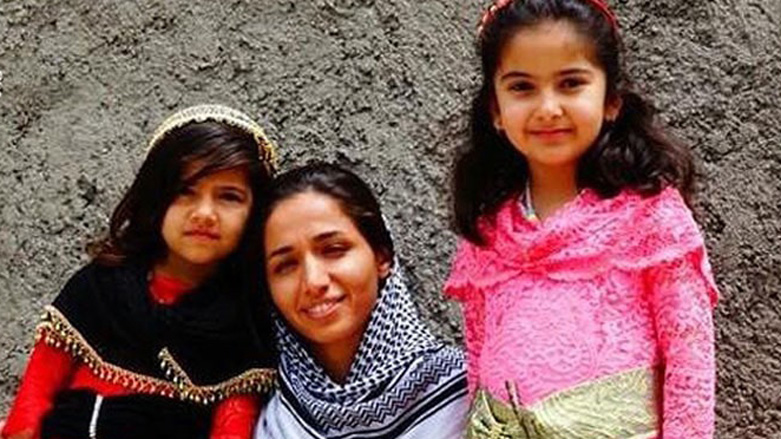Iran releases Kurdish activist, language teacher after 6 month detention

ERBIL (Kurdistan 24) - Kurdish civil society activist and teacher Zahra Mohammadi has been released on bail on Monday after being detained for over six months, local Kurdish human rights organization Hengaw, as well as others, reported.
Zahra Mohammadi, aged 29, is the director of the Nojin Cultural Association, whose activities include teaching the Kurdish language, literature, and various civil society activities.
According to Hengaw, the Nojin Cultural Association is active in Iran’s Kurdistan province in such areas as the capital city of Sanandaj (Sine) and other towns and villages such as Dewlan, Bane, Saqqez, and Kamyaran.
Prior to her May 23 arrest, Mohammadi had been subjected to several lengthy interrogations by Iran’s Ministry of Intelligence.
According to Kurdistan Press Agency (Kurdpa), she was initially held in solitary confinement until May 31st, after which she was transferred to Sanandaj Prison.
Later, during a meeting with her family members, she said that she had been under extreme pressure during her eight days in solitary confinement to make “confessions.”
On Sept. 18th, Mohammadi was transferred to the first branch of the Revolutionary Court in Sanandaj for trial. Her lawyers and family had not been informed of the hearing, which was subsequently postponed.
Jila Mostajer, manager of Hengaw, told Kurdistan 24 that Mohammadi was released on a bail of 700 million toman ($166,000), an amount she says is excessive.
“Her family was not able to afford it. Someone else gave them the money as loan and they should give the money back,” adding that Mohammadi is “not in prison now, but she is being watched and not allowed to leave Sanandaj.”
Mohammadi has been accused of cooperating with Kurdish opposition groups and charged with national security offenses “solely in connection with her work empowering marginalized members of Iran’s Kurdish minority,” including through teaching the Kurdish language, Amnesty International said.
Mostajer also earlier told Kurdistan 24 that Mohammadi was accused of teaching Kurdish to a group of young children who lived in her neighborhood.
Read More: Authorities in Iran arrest several Kurds ahead of Quds Day parade: report
Amnesty International organized a campaign in November for Mohammadi calling for her immediate and unconditional release since she was held as a “prisoner of conscience detained solely for her peaceful civil society activism.”
Iranian Kurdish civil society activist Zahra Mohammadi has been arbitrarily detained since her arrest on 23 May 2019. She is detained solely in connection with her work empowering marginalized members of Iran’s Kurdish minority & must be released NOW! https://t.co/JKdgetRyDU pic.twitter.com/fLFtoxUBFm
— Amnesty Iran (@AmnestyIran) November 14, 2019
According to Amnesty International’s annual human rights review published in February, ethnic minorities in Iran, including Kurds, continue to face “entrenched discrimination, curtailing their access to education, employment, and adequate housing.”
The report added that members of minority groups who spoke out against violations of their rights faced arbitrary arrest, torture, unfair trials, and imprisonment. There are over 12 million Kurds who live in Iran and form around 15-17 percent of the population.
Although Kurdish culture, such as dress and music, is allowed and Kurdish is used in some broadcasts and publications, the Kurdish minority continues to suffer deep-rooted discrimination.
Moreover, the Persian language is the sole medium of instruction in primary and secondary education in Iran. Kurdish is not taught in schools.
Editing by John J. Catherine
